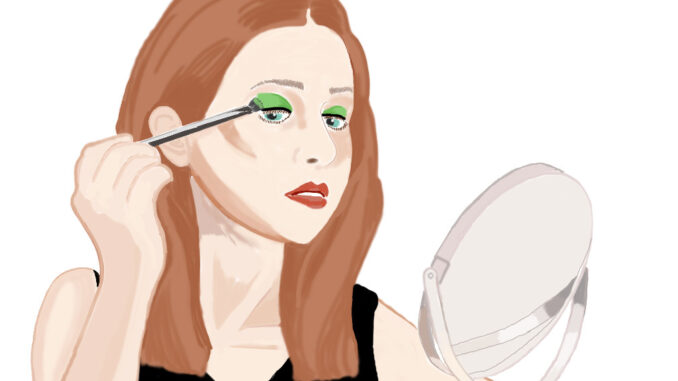
Makeup has been a part of human culture for thousands of years, serving as a means of self-expression, artistry, and adornment. While the primary purpose of makeup may have evolved over time, one aspect remains constant: its ability to boost confidence.
The psychology behind makeup’s confidence-boosting effects is a fascinating subject that delves into self-perception, societal norms, and the power of self-expression.








In this article, we will explore how makeup impacts self-esteem and confidence, shedding light on the complex interplay between beauty products and human psychology.
The Power of Self-Expression
Makeup is a form of self-expression, allowing individuals to convey their identity, mood, and creativity through colors, styles, and techniques. When people apply makeup, they have an opportunity to express themselves, much like an artist with a canvas. This creative act fosters a sense of empowerment and self-assuredness, which can significantly boost confidence.
Self-expression through makeup is not limited to enhancing beauty; it’s about enhancing one’s personality and emotions. For instance, someone might wear bold, vibrant eyeshadow to project confidence and enthusiasm, while another might choose subtle, natural tones to convey elegance and sophistication. The choices made in makeup application are a reflection of an individual’s inner thoughts and feelings, thereby enhancing their self-esteem and confidence.
Enhancing Facial Features
One of the most immediate and noticeable effects of makeup is its ability to enhance facial features. By strategically applying makeup, individuals can accentuate their best features and downplay areas of concern. This enhancement can lead to a more positive self-perception, increasing overall confidence.
For example, makeup can be used to define and emphasize the eyes, making them appear larger and more captivating. Fuller lips, higher cheekbones, and a well-contoured jawline are other examples of how makeup can transform the face, resulting in a more pleasing self-image. This transformation, even if temporary, often leads to an improved sense of self-worth.
The Psychological Impact of Positive Feedback
When someone wears makeup and receives compliments or positive feedback from others, it can have a profound impact on their confidence. These compliments reaffirm their attractiveness and boost their self-esteem. This psychological feedback loop encourages individuals to continue using makeup as a tool for enhancing their self-esteem and overall confidence.
Furthermore, makeup allows individuals to conform to societal beauty standards, which can, in turn, boost their confidence. Society often equates certain beauty traits with confidence and success, and makeup can help individuals align with these ideals. When they see themselves conforming to these standards, it reinforces their self-esteem.
A Shield Against Negative Self-Perception
For many people, makeup serves as a form of armor against negative self-perception. It can act as a protective shield, helping individuals conceal blemishes, imperfections, or signs of fatigue. In doing so, makeup can instill a sense of confidence by allowing individuals to present their best selves to the world.
This shield effect can be particularly empowering in situations where self-confidence may be challenged, such as job interviews, public speaking engagements, or important social events. The knowledge that they look their best helps individuals approach these situations with greater self-assuredness.
Psychological Benefits of Ritual
The act of applying makeup can be a therapeutic and empowering ritual in itself. The process requires attention to detail and self-care, both of which can be psychologically rewarding. This ritualistic aspect of makeup application can create a sense of structure and control, leading to increased confidence.
Additionally, the time spent on makeup can serve as a form of mindfulness, allowing individuals to focus their thoughts and set positive intentions for the day. This mental preparation can lead to improved self-confidence, as individuals approach their day with a clear and positive mindset.
Challenges and Controversies
While makeup undoubtedly has the power to boost confidence, it’s important to acknowledge the potential challenges and controversies surrounding its use. Some argue that makeup perpetuates unrealistic beauty standards, leading individuals to feel inadequate without it. Additionally, the pressure to wear makeup can create a sense of dependency and self-esteem issues when individuals feel they cannot go without it.
Conclusion
The psychology of makeup and its ability to boost confidence is a multifaceted topic. While makeup can undeniably enhance self-esteem and self-perception, it’s crucial to strike a balance between using makeup as a tool for empowerment and not relying on it as a crutch for self-worth. Ultimately, makeup should be viewed as a form of self-expression, creativity, and self-care that complements an individual’s natural beauty, rather than defines it. Understanding the psychological nuances of makeup’s influence on confidence allows us to harness its positive effects while remaining mindful of its potential pitfalls.

Leave a Reply